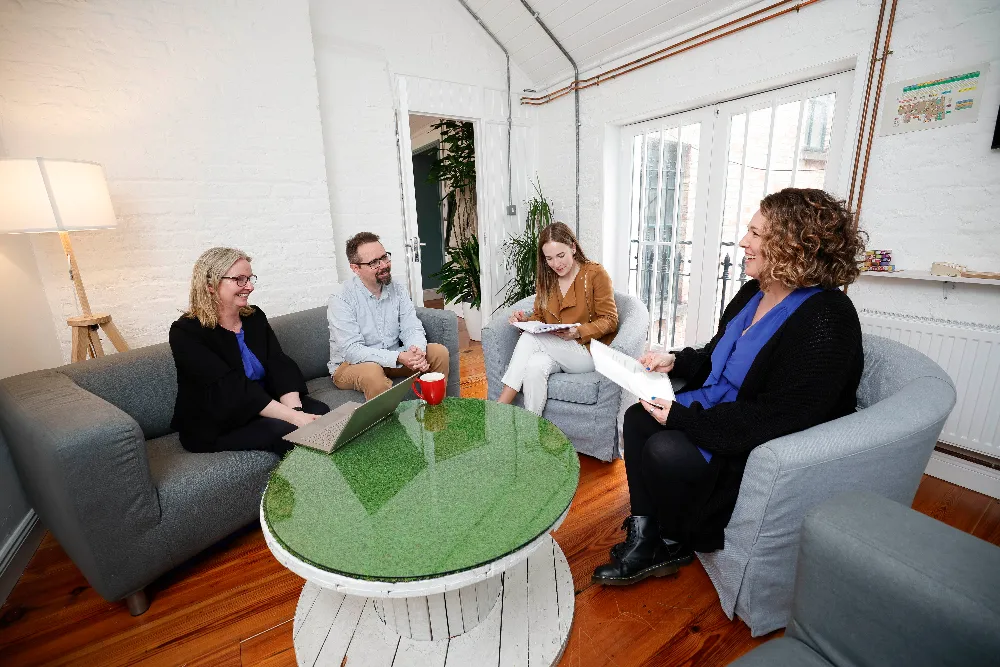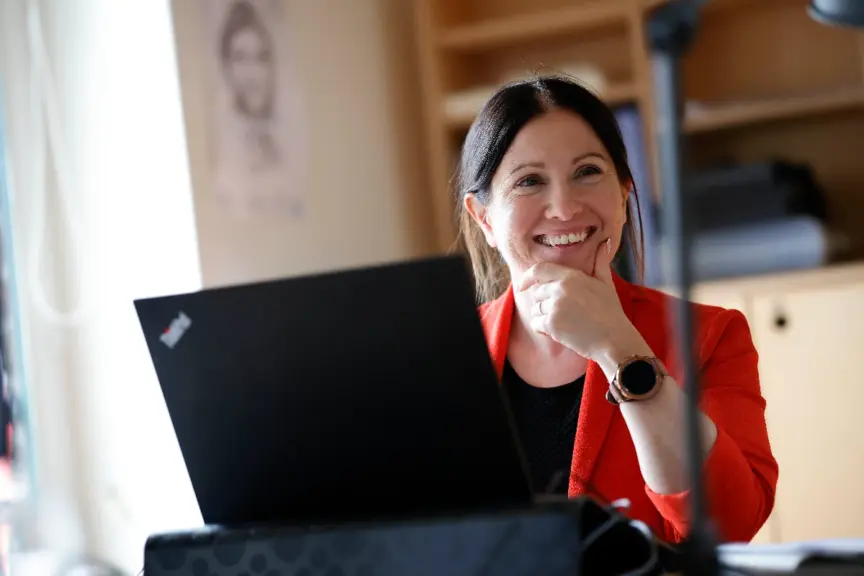Our 4-day week
At Codema, your weekend starts on a Thursday!

About the 4-day week
We are very proud to be one of just a handful of companies in Ireland that offer a four-day working week. The 4-day week is a global initiative supporting a reduced-hour working model. This allows our staff to maximise their productivity, working 20% more efficiently in order to have an extra day off work per week, while still receiving full pay.
Giving staff more time to invest in personal interests, develop new hobbies and spend more time with their loved ones have all helped to improve wellbeing and job satisfaction, which, in turn, has resulted in a more efficient, motivated and productive team.
How it works
Work 20% more efficiently for just 80% of your time
100% pay
More time to invest in personal interests over a 3-day weekend

Background to our 4-day week
In Codema, we have always implemented new, innovative solutions in climate mitigation to improve our environment and the lives of the people of Dublin. We also pride ourselves on making decisions based on objective and robust scientific evidence. On that basis, it made sense to apply these same principles to not just to what we do, but also to how we do it.
In response to this, we began trialling a four-day week within our organisation in February 2022. This trial was then extended indefinitely at the end of that year due to the many positive benefits recorded during the pilot period, such as improvements in work-life balance and job satisfaction, and continues to this day!
Why a 4-day week?
Evidence provided by global studies of ‘4 Day Week’ trials all show positive results in terms of both increased productivity and employee wellbeing, so it seemed like an excellent opportunity to be one of just 12 companies in Ireland to participate in a global 4-day week trial.
Additionally, as a not-for-profit agency, our employees are our most valuable asset and so their wellbeing is a top priority for our organisation. Climate action has become the most pressing issue of our time, and those working in the sector have come under increased pressure to deliver, as well as being exposed daily to news that can cause ‘climate anxiety’. We therefore have an increased duty of care to look for ways to protect our staff’s mental health and protect against burn-out.
As a small, not-for-profit energy agency that truly values its employees, we hope to inspire other organisations with our innovative working practices.

Results
The evidence to support the success of the four-day week in Codema comes from analysis of both internal survey responses and the official, global four-day week research undertaken by UCD and Boston College. The data demonstrated improvements in:
Staff wellbeing
Work ability
Job satisfaction
Improving sleep
Frequency and duration of exercise
Work-life balance
Reducing burnout
Reducing overtime worked

Productivity Promise
We regularly monitor and evaluate the success and impact of our four-day week throughout the year by tracking deadlines and milestones and measuring the quality of our work. We actively involve our team in any decisions that are made, so that we can collectively agree on the best approach to our smarter, more-efficient working-week.
We enable staff to cut down on their 20% ‘non-productive’ time, while providing training on time management, productivity tools and attention/focus management.
Importantly, our team must sign up to a ‘Productivity Promise’, whereby they agree to complete their work to the same, high standard in 80% of the time and in return, are rewarded with a day off on full pay.